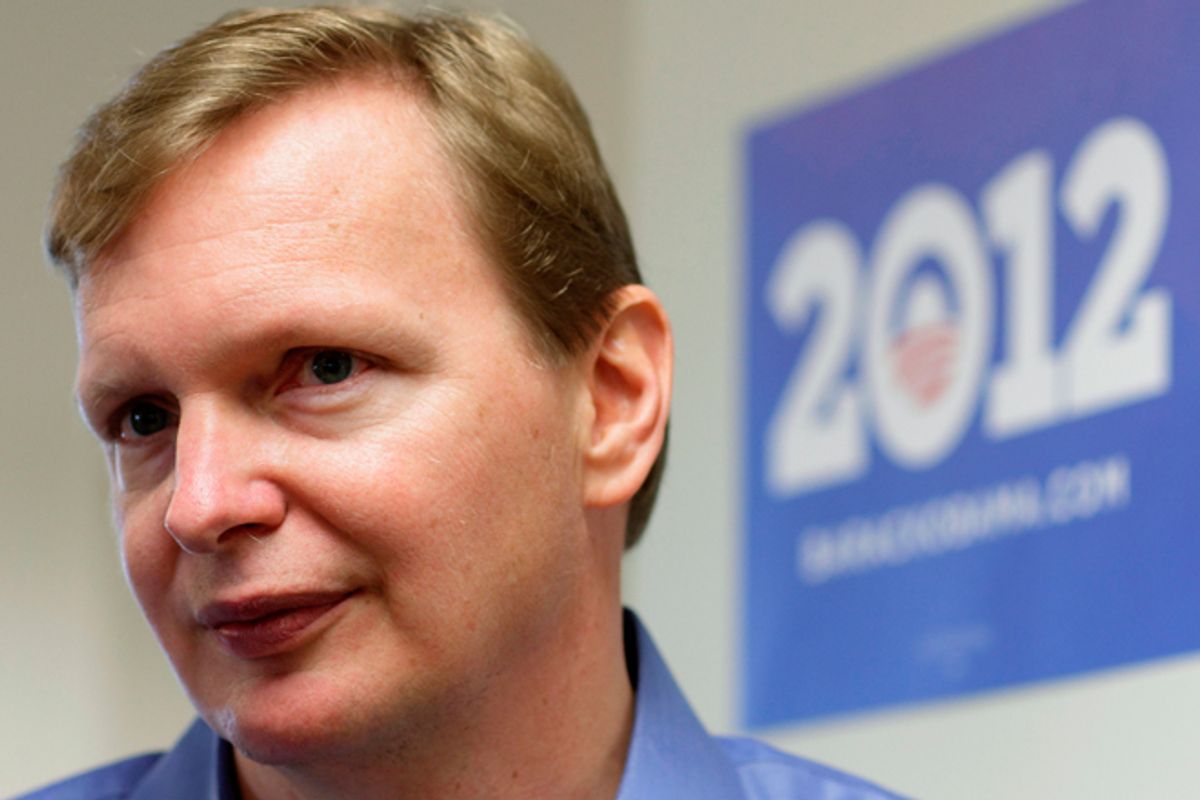After years of 16-hour workdays and constant stress, while earning below market salaries, President Obama's best-known aides are leaving en masse to set up their own gigs in the private sector -- where the hours will be fewer, the meetings less stressful, and the pay more abundant.
Obama 2012 campaign manager Jim Messina is the latest, telling Politico Wednesday that he’s leaving Team Obama to start a consulting firm for which Team Obama will be his primary client. He’ll remain chairman of Organizing for Action, the organization forged out of the 2012 campaign apparatus that will act as outside pressure group for the administration’s agenda.
Though they will not be his focus, he may take on corporate clients as well. Ty Matsdorf, an Obama campaign alum who was a senior aide at the liberal American Bridge super PAC during the 2012 campaign, will also join him, as will Tara Corrigan, who worked on both campaigns and in the White House.
Meanwhile, one of Obama’s longest serving and closest advisers, David Axelrod, has signed with MSNBC as an analyst, as has former press secretary Robert Gibbs, who also worked on the campaign.
In addition, Gibbs will remain affiliated with OFA, as will David Plouffe. He left the White House at the end of January after serving as a senior adviser to the president, and after managing the 2008 campaign before that. Plouffe hasn’t said exactly what he’ll do yet, telling the New York Times he plans to spend time with his family, give speeches, consult with private sector clients.
Plouffe has been criticized in the past over big speaking fees, sometimes for questionable clients. For instance, in 2009, he was paid $50,000 to speak at an Azerbaijani event sponsored by someone with close ties to the authoritarian regime. After complaints from human rights groups, he donated the money to the National Democratic Institute.
Meanwhile, Obama’s longtime speechwriter Jon Favreau and National Security Council spokesperson Tommy Vietor are leaving to form their own political consulting firm called Fenway Strategies, since they are both from Boston.
And finally, Bill Burton, who was a deputy White House press secretary before leaving to run a pro-Obama super PAC in 2012, is heading to Global Strategy Group, a P.R. behemoth.
The shakeup, with most of the moves announced in the past month, leaves the White House with few of the inner circle that Obama has come to rely on. But it should leave all of the former staffers with a better bank account balance.
It's often looked down upon when officials leave for private sector jobs, especially in lobbying or political consulting. But it's a perfectly understandable move for a staffer who has likely spent the last decade or more of his or her life overworked and underpaid in a highly stressful environment with little job security. Working on political campaigns requires absolute dedication to your candidate, demanding long hours and grueling travel schedules, and, for senior officials, complete discipline, as every word and movement can and will be scrutinized by the press and the opposition. And it could all be for naught if things don’t go your way on the first Tuesday in November.
Once in government, things get a little bit better, but the hours often remain hellish, leaving little time for family and an outside life. The salary -- over $100,000 for senior White House staff -- is comfortable and about triple the national average, but less than what people with similar education, experience and skills could fetch in the private sector. Of course, people take these jobs because they believe in public service and their bosses, but the opportunity costs -- what’s given up by pursuing public service, instead of private sector opportunities -- can be tremendous.
Which is why it’s understood in Washington that for those who want a certain lifestyle, the compensation for the thankless work on Capitol Hill or stressful life in the White House will come after they leave, when they leverage their government experience into cushy and lucrative consulting deals.

Shares